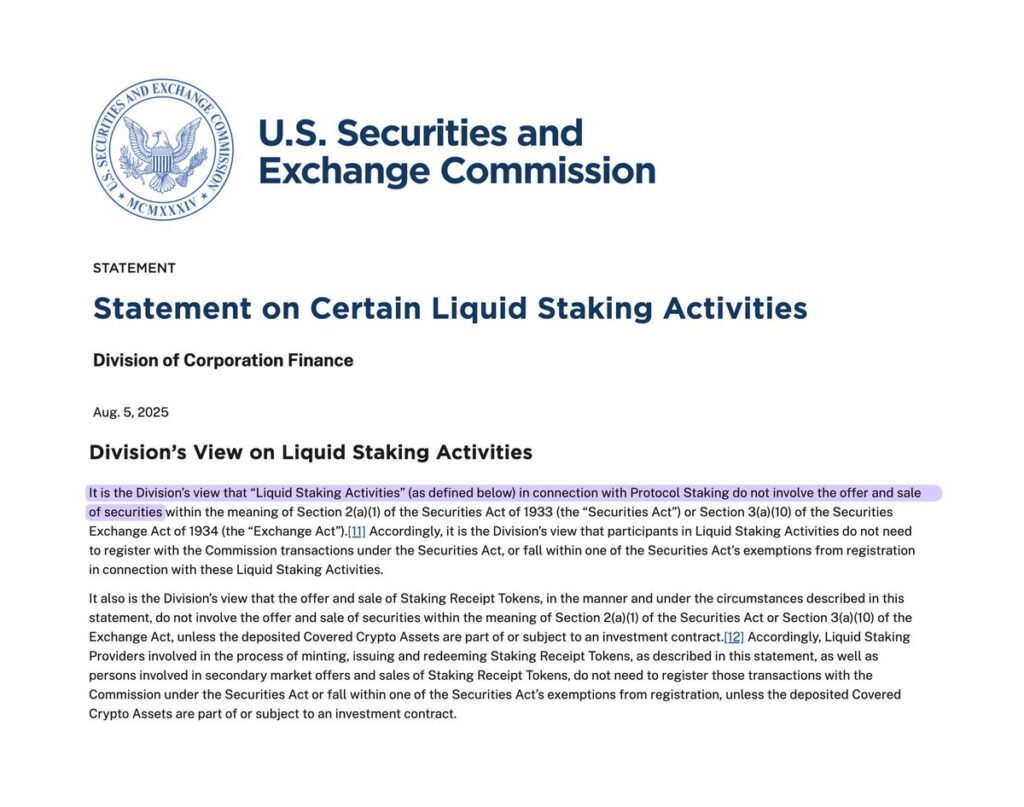The U.S. Securities and Exchange Commission (SEC) issued new guidance clarifying that certain liquid crypto staking activities do not qualify as securities under federal law. This statement, released on August 5, 2025, provides long‑awaited clarity for DeFi protocols, institutional investors, and developers in the crypto space.
Key Details of the SEC Statement
The SEC’s Division of Corporation Finance explained that liquid staking activities can remain outside securities regulation when they meet strict conditions:
- No managerial control or promotional guarantees by third parties.
- Protocol‑based automation, where tokens are minted and redeemed without human discretion.
- No expectation of profits from others’ efforts, aligning with the Howey Test.
According to the agency, staking receipt tokens (LSTs) that simply represent a user’s staked position like those used in many liquid staking protocols are not securities when issued without active management or performance promises.
Industry Impact and Market Reaction
The announcement triggered a positive response in the liquid staking market, which currently holds around US$ 67 billion in total value locked (TVL), with Ethereum representing US$ 31.7 billion. Projects like Lido, Rocket Pool, and Jito Labs saw a mild uptick in token prices, reflecting increased regulatory confidence.
Analysts point to three major consequences:
- Regulatory clarity for DeFi innovation Developers can expand liquid staking services without fear of immediate securities enforcement.
- Increased institutional participation Hedge funds, ETF issuers, and custodians may now integrate LSTs into compliant strategies.
- Potential for ETF expansion Spot ETH ETFs could incorporate liquid staking products to improve liquidity and yield.
A Partial Win With Caution
The SEC emphasized that this is staff guidance, not a binding rule. Any project offering returns through discretionary management or marketing staking as a profit‑generating investment could still fall under securities regulation.
Legal experts note that centralized exchanges offering “staking services” remain exposed to regulatory action if they do not align with the new framework.

Source: SEC, CoinDesk, Finance Magnates, MarketWatch







